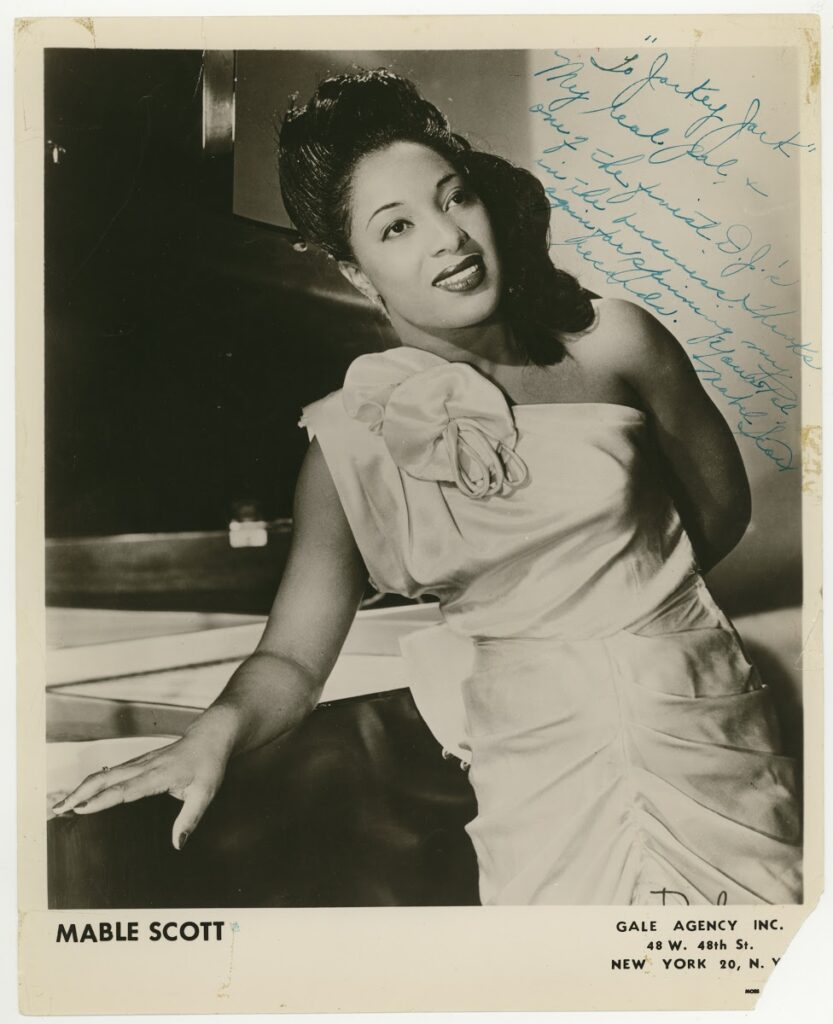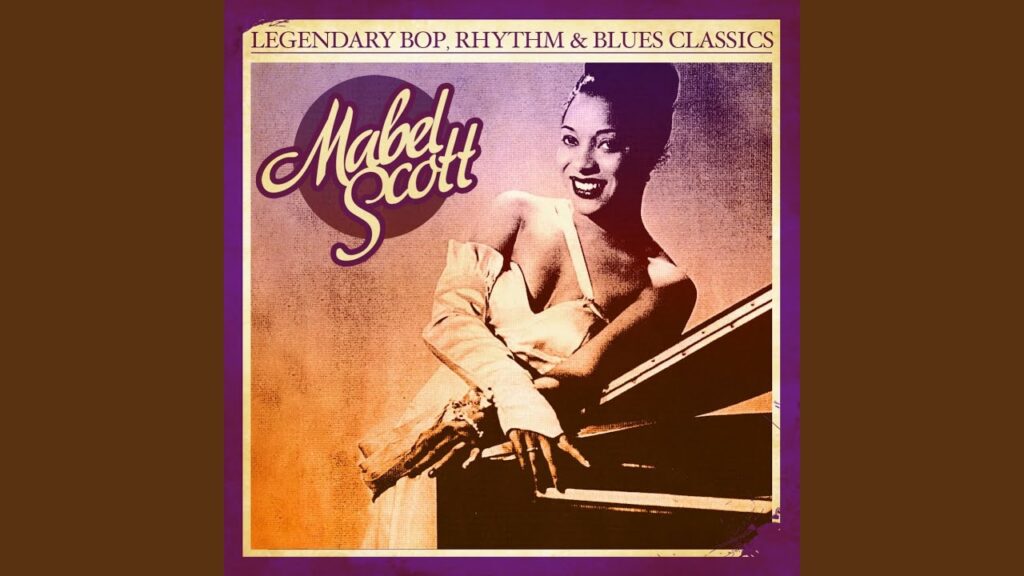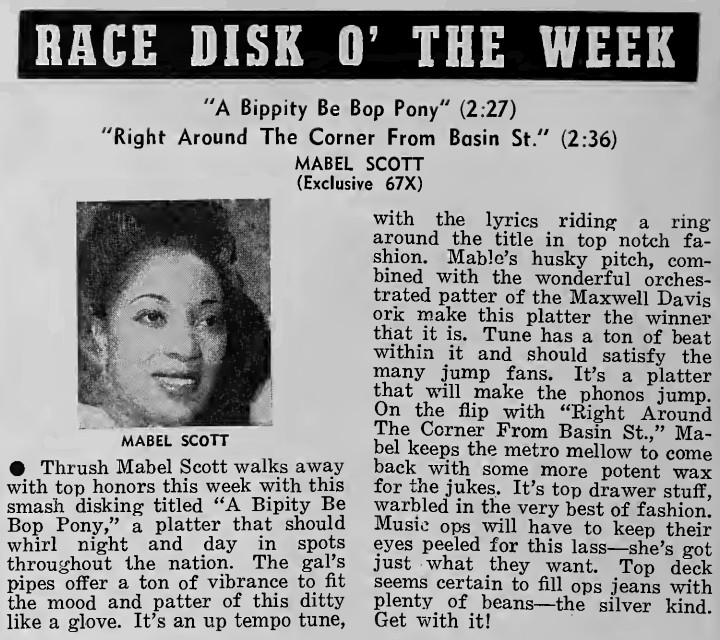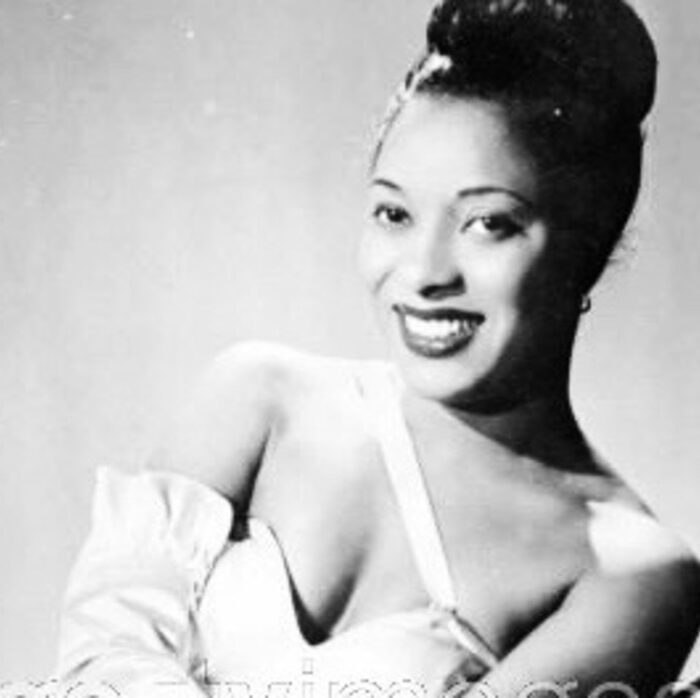| MABEL SCOTT (By Dave Penny) “Tiny Bradshaw, Bull Moose Jackson, I worked with all of them. They were great musicians. money was no object, there was plenty of money around. I ‘d be at Café Society this week and I’d have to be very sophisticated. I’d sing all the smart supper club songs. And then next week, I’d be down South shouting the blues. I had to be very, very pliable!” One of the least regarded, but arguably the most talented of the many female pianist/vocalists who inhabited the West Coast during the 1940s, Mabel Scott was beautiful, elegant and classically trained, with a strong voice suitable for torchy ballads as well as uptempo jump novelties. And she was married, albeit briefly, to one of the major stars of 1940s black music. Small wonder, then, that she was not more commercially successful during her recording career – or more well-known today than she is. Born the youngest of three children in Richmond, Virginia, on 30th April 1915, Mabel Bernice Scott’s family moved to New York City when she was just six. She started piano lessons the following year and began singing at The Metropolitan Baptist Church, going on to form her own female gospel group, The Song Cycles. Turning to secular entertainment, Mabel Scott made her professional debut at the age of 17, working at the Cotton Club in Harlem with the Cab Calloway Orchestra and the Nicholas Brothers. She moved from New York City to Cleveland in 1936 and the following year toured Europe, making both her first film appearance and recording debut in England when she recorded two sessions for Parlophone in London in early 1938 with her regular piano accompanist, Bob Mosely. A huge success, the pair returned to Europe, reportedly from 1940 through to 1942, only returning to the US when the war situation escalated and upon their return moved their base of operations to the West Coast. Mosely went on to join Jack McVea’s first band and Scott briefly joined the Jimmie Lunceford Orchestra.By 1943, Mabel was headlining at Central Avenue’s famous Club Alabam in a revue emceed by the young Wynonie Harris, and she spent some time in the mid 1940s as the female vocalist with Lorenzo Flennoy’s band. By the early post war years, Mabel’s star had risen again sufficiently to enable her to resume her recording career for a one-off session for Hub Records, and she joined Leon Rene’s Exclusive label in 1947, hitting the Billboard R&B charts the following year with her recordings of Elevator Boogie (#6) and Boogie Woogie Santa Claus (#12). The former recording featured the piano of another Exclusive label artist, Charles Brown, who toured with Mabel in 1948, at the height of their success, and married her the following year, divorcing in 1951.In 1950, Mabel, with a couple of all star backing bands, made two fine sessions for King Records in New York City, but sadly none of the recordings were lucrative hits and she left the Cincinnati-based label to record in the early 1950s for Coral, Brunswick and Parrot, making her final recordings with Les Welch’s Jazz Band during a tour of Australia for Festival Records in August 1955. An abusive relationship with her second husband persuaded Mabel to turn to the church for comfort, whereupon she retired from secular music in the late 1950s to sing once again for the Almighty. She died in her adopted home of Los Angeles on 19th July 2000. |
Appetizers



Excellent Mabel Scott bio here https://www.uncamarvy.com/MabelScott/mabelscott.html

